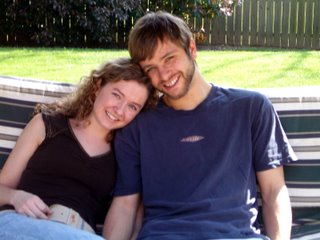Mother's Day has come and gone with its typical stealth. I am not deterred, however, by Hallmark and its scheduling. I want to take a day and celebrate my Mom, post-holiday.
The Lord did me a great kindness in selecting my mother, Donna Dustin Strachan, to care for me in my youth. It is an awesome thing to look back through time and realize that before this earth was, God had paired my mother with me. He did this in order that I would experience her kindness, her sacrificial love, and her warm, wonderful personality. My association with Mom, then, begins not in 1981. It begins in an age for which there is no date. For this I have divine providence to thank.
I was not around to witness the weaving of threads that one day brought Mom and me together. I was, however, around in the early 1980s, when my father and mother showered me with love on a daily basis. They were young parents then, making a home in small-town Maine, Dad working as a forester, Mom working in a small-town library, both attending a small-town church. Those were simple days. Being the first child, I received all sorts of attention, which I despised. Okay, I'm kidding. I loved the time with Dad and Mom. Mom took me to the Library with her. I crawled all over the nineteenth-century structure and eventually discovered the children's books section in the basement that smelled of forgotten creativity. Mom nurtured that love for reading and learning by reading to me often. One consequence was that one of my greatest joys as a child was to have my parents read two books with me before I went to bed (only to think of those books when I should have slept). Mom and I forged a special connection in those early years. She cooked chocolate chip cookies, took me on my first shopping trips, and supervised from a distance my first friendships. She had much love to give. I received a great deal of it, and was forever changed as a result.
Adolescence often marks the beginning of a wedge between a boy and his mother. He moves more into the territory of masculinity and discovers that it's not cool to talk about your Mom on the playground. I did branch out and make friends like other kids, but I retained my strong bond with my mother. Mom understood me. She laughed with me, challenged me to excel at school, and encouraged me in the difficult days of junior high. We still went on our pre-school shopping trips, still enjoyed a good laugh, and watched Homicide, Dateline, and the X-Files together. In these days, Mom's mettle showed itself. How many basketball games--high school, college, and pro--this woman watched I could never guess.
Way more than she bargained for, I assure you. Yet on many a night, she was content to sit on the couch, knitting and perusing books to purchase for the library, while I watched one game after another. Mom didn't need a deep connection to the current activity to be engaged with me. Her love was enough. Here was the thread that lasted through all the years, all the hurt, all the adjustment, all the joy. Love was enough.
High school brought a new phase and sustained expression of Mom's love. Two things stand out about those years. First was Mom's attendance at seemingly every event I participated in during high school. Band concerts, plays, basketball games, baseball games, cross country meets, and much more. Mom was always there, it seemed, and always wholeheartedly cheering me on. She was a wonderful fan, and this filled me with purpose, happiness, and trust. I
knew she was there for me. A boy cannot say what that means for him. I couldn't then, and I try now, and even now, it means more than I can write. Thanks, Mom.
Come back tomorrow for more.


